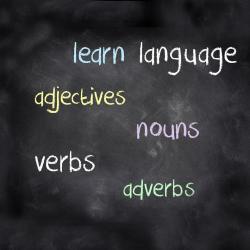How to Learn a New Language as an Adult: Effective Strategies
Learning a new language as an adult can be a rewarding yet challenging journey. Unlike children, who often pick up new languages effortlessly, adults may face obstacles such as busy schedules, ingrained learning habits, and sometimes a bit of self-doubt. However, with the right strategies, adults can become proficient in a new language, gaining not only linguistic skills but also new perspectives and connections. Here are some effective strategies to help guide you on your language learning path:
1. Set Clear, Achievable Goals
Begin by defining why you want to learn the language. Are you preparing for travel? Looking to enhance your career? Or simply curious about another culture? Your motivation will shape your learning approach. Next, set specific, achievable goals. For example, aim to hold a basic conversation within three months or master key vocabulary for work-related scenarios.
2. Immerse Yourself in the Language
Surrounding yourself with the language is crucial. Start by incorporating language media into your daily routine. Listen to music, watch movies, or follow podcasts in the target language. Try switching your phone or social media settings to the new language, which can provide daily micro-learning opportunities.
3. Practice Consistently
Consistency trumps intensity when it comes to learning a language. Allocate a specific time each day for language study, even if it’s just 15-30 minutes. Regular practice helps reinforce new vocabulary and grammar, cementing them in your memory over time.
4. Engage in Active Practice
Passive learning, such as watching movies or reading, should be complemented with active practice. Engage with the language as often as possible by speaking, writing, and thinking in it. Find language exchange partners or join conversation groups. Apps like Tandem or Meetup can connect you with native speakers for practice.
5. Use Technology Wisely
Today’s learners have access to a myriad of technological tools. Language apps like Duolingo, Rosetta Stone, or Babbel offer structured courses suitable for beginners to advanced learners. Flashcard apps like Anki or Quizlet help reinforce vocabulary through spaced repetition, a proven memorization technique.
6. Learn in Context
Focus on learning words and phrases in context rather than in isolation. Understanding how vocabulary fits into sentences and conversations accelerates comprehension and retention. Contextual learning is particularly useful for grasping idiomatic expressions and cultural nuances.
7. Embrace Mistakes
Fear of making mistakes can inhibit progress. Accept that errors are a vital part of the learning process. Each mistake is an opportunity to learn and improve. A supportive learning environment, whether in a formal classroom or a casual conversation group, can make this process less intimidating.
8. Reflect on Your Progress
Periodically assess your progress to stay motivated and adjust your strategies if needed. Celebrate small victories, like understanding a full conversation or finishing a book, to keep your spirits high. If progress stalls, consider trying new learning methods or resources.
9. Take Advantage of Cultural Insights
Language is deeply intertwined with culture. Understanding the cultural context of a language can enhance your learning experience. Participate in cultural events, cook dishes using recipes in the target language, or follow news outlets from regions where the language is spoken.
10. Be Patient and Persistent
Language learning is a marathon, not a sprint. It requires time, patience, and perseverance. There will be moments of frustration and plateaus, but maintaining a positive attitude and reminding yourself of your initial motivations can help sustain your efforts.
In conclusion, while learning a new language as an adult may seem daunting, it is entirely achievable with the right mindset and strategies. By immersing yourself in the language, practicing consistently, leveraging technology, and embracing cultural contexts, you can unlock a world of possibilities and enrich your personal and professional life. Whether you’re aiming for basic proficiency or fluency, remember that every small step counts in this transformative and fulfilling journey.






















